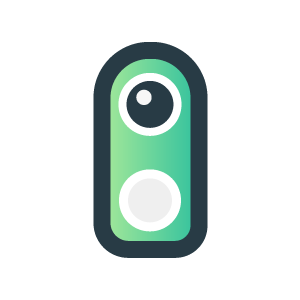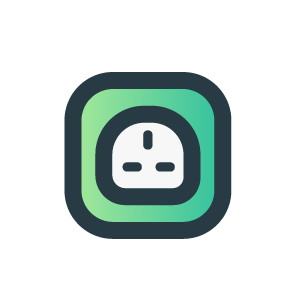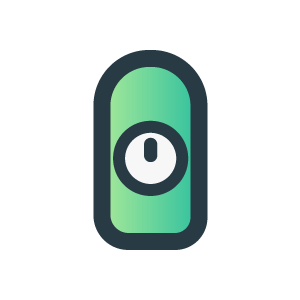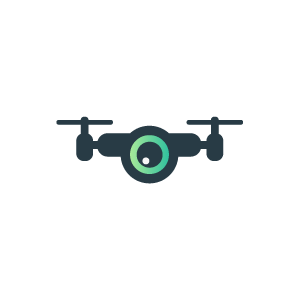This article was originally published on 18/06/2024 and was updated on 10/03/2025
Smart technology is making our homes more connected and convenient than ever—but it also plays a major role in keeping them safe. From Wi-Fi cameras to door sensors and smart locks, these devices help you protect your property and may even lower your insurance premiums. Here’s a concise guide to the best smart devices for home security.
Why Home Security Matters
“Prevention is better than cure.” This old saying holds true, especially when it comes to protecting your home. Insurance companies look for safety features like secure locks, smoke alarms, and CO2 detectors, and having these in place could mean better coverage and reduced premiums. Smart home devices help prevent break-ins, fires, water damage, and more—often in real time.
Not long ago, having CCTV or advanced security systems usually meant professional installations and high costs. Today, easy-to-use Wi-Fi devices and cloud storage have made home security affordable and accessible. With the rise of the Internet of Things (IoT) and AI, it’s easier than ever to monitor and control what goes on in your home, no matter where you are.

1. Cameras (Indoor/Outdoor)
Why You Need Them: Keep an eye on your property, deter burglars, and store footage in the cloud for easy access.
Key Features: Two-way audio, night vision, motion tracking, face recognition, and activity zones.
What to Consider: Some advanced features (like extended video history) may require a monthly subscription.

2. Video Doorbells
Why You Need Them: See who’s at your door—even if you’re not home—and talk to visitors via your phone.
Key Features: Motion alerts, live video feed, two-way audio, simple installation (hardwired or battery).
What to Consider: Additional cloud storage or facial recognition might require a subscription.

3. Smart Plugs
Why You Need Them: Turn ordinary devices into “smart” ones you can control remotely or through voice assistants.
Key Features: Schedule lights or appliances to turn on/off (handy for simulating occupancy when you’re away).
What to Consider: Great for lamps, kettles, or even electric blankets; just ensure you have good Wi-Fi coverage.

4. Smart Speakers
Why You Need Them: They’re the voice-control hubs for your entire smart home, playing music and controlling other devices.
Key Features: Set routines (e.g., lights or music at certain times), create presence at home when you’re away.
What to Consider: Can integrate with cameras, doorbells, and more for a seamless security setup.

5. Smart Meters
Why You Need Them: Monitor energy or water usage in real time, detect unusual spikes that could indicate leaks.
Key Features: Automatic alerts, detailed usage reports, potential cost savings.
What to Consider: Some are installed by providers; others are DIY. Real-time monitoring helps catch problems early.

6. Door & Window Contact Sensors
Why You Need Them: Get instant phone alerts if a door or window is opened unexpectedly.
Key Features: Small, battery-powered, and easy to install discreetly.
What to Consider: Ideal for larger homes with multiple access points or shared living situations.

7. Smart Smoke & CO2 Detectors
Why You Need Them: Traditional detectors can’t warn you when you’re out—but a connected one will.
Key Features: Alerts to your phone, sometimes additional data like humidity or air quality.
What to Consider: Especially valuable for landlords or Airbnb hosts; faster alerts mean faster emergency response.

8. Smart Locks
Why You Need Them: Grant (and track) home access remotely without physical keys.
Key Features: Some have voice command, fingerprint scanners, or facial recognition.
What to Consider: Ideal for anyone who rents out their property or frequently misplaces keys.

9. Smart Home Appliances
Why You Need Them: Fridges, ovens, or washing machines that send alerts about open doors or left-on devices.
Key Features: Remote monitoring and control, notifications about temperature changes or running cycles.
What to Consider: Peace of mind if you’re worried you left the oven on or the fridge open.

10. Smart Blinds & Curtains
Why You Need Them: Automate privacy and security by scheduling open/close times to mimic occupancy.
Key Features: Remote control, integration with other smart devices, voice activation.
What to Consider: Can also help manage indoor temperature and reduce energy costs.

11. Drones (Emerging Technology)
Why You Need Them: Autonomous indoor drones can patrol your home while you’re away.
Key Features: Real-time interior feed, alerts for unusual activity.
What to Consider: Still in testing phases; more suitable for larger homes.

12. Smart Light Bulbs
Why You Need Them: Automate lighting to discourage intruders by making it seem like someone’s home.
Key Features: Remote on/off, dimming, color changes, scheduling.
What to Consider: Simple, budget-friendly entry into smart home tech.

13. Smart Thermostats
Why You Need Them: Prevent damage from frozen pipes or humidity; control heating/cooling from anywhere.
Key Features: Learning capabilities, remote access, integration with weather forecasts.
What to Consider: Great for extended absences; can alert you to sudden temperature spikes or drops.

14. Leak Detectors
Why You Need Them: Water damage is a major source of insurance claims, and early detection is key.
Key Features: Real-time smartphone alerts, some devices automatically shut off water.
What to Consider: Low cost, high payoff. Great addition to a broader smart home setup.
Smart devices aren’t just about convenience—they’re about proactive protection. Cameras, sensors, and locks deter intruders and catch incidents early, while leak detectors, smart appliances, and thermostats prevent costly damage. Over time, these measures can also lead to better insurance premiums by reducing risk.
Whether you choose just one or two devices or invest in a full setup, smart technology makes your home safer, more efficient, and more secure. After all, prevention is always better than cure.
This post is not sponsored by or affiliated with any third parties. The products mentioned are included based on their relevance and merit alone.



